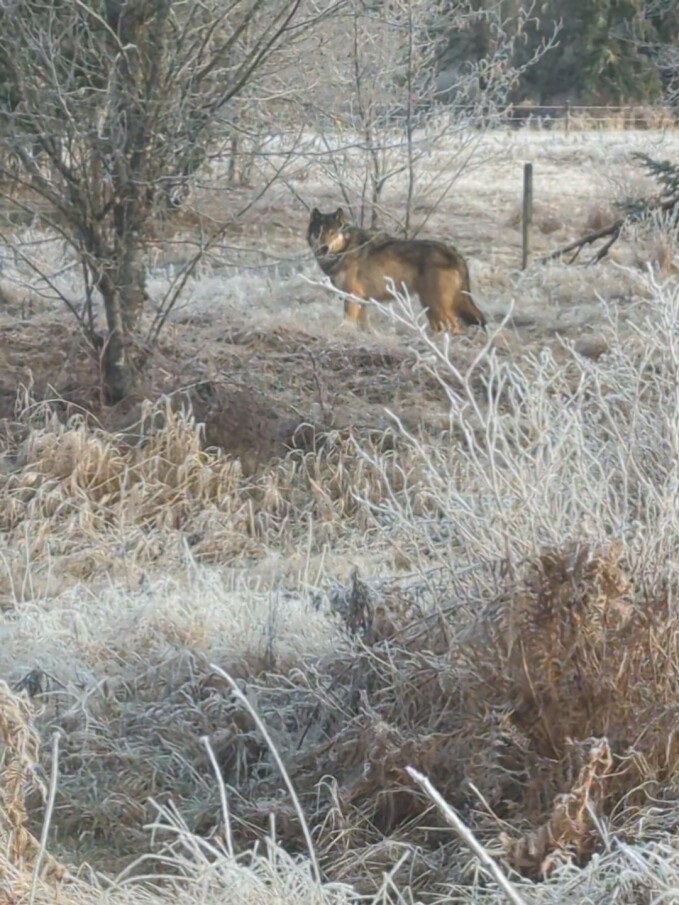Another dog has been attacked by the wolf-dog loose in the Coombs area, north of Nanaimo, on Vancouver Island.

Resident Trevor Hocking was walking his dog Riley, a six-year-old Australian Shepherd, last Thursday before he went to work.
“He saw a couple deer, so he went running after them. And then when he was running back to me, there was the wolf-dog right behind him, and it latched onto his rear end and knocked him right to the ground and, started chewing on him,” Hocking said.
“So I ran up to them as fast as I could, to try and break it up. And thankfully, that was enough to make the wolf-dog walk away.”
Hocking said he kept following the wolf-dog and yelling at it and eventually it left.

“I was scared I was going to lose him,” he said.
“That was the only thing going through my mind at that time, was just, I don’t want to lose this guy. So I did whatever I could to try and make it stop.”

Last November, it is believed that the wolf-dog killed a family’s dog staying at the Coombs Country Campground.

Get breaking National news
The dog has been dubbed WD-40 by rescuers, WD for wolf-dog and 40 for oil as the animal is quite “slippery” to catch.
Residents in the area have been raising concerns about the wolf-dog since early November. It is unclear where the animal came from or how it ended up in the area, though there are rumours it was dumped from a vehicle, circulating in the community.
Following a series of encounters, an organization called Find Lost and Escaped Dogs (FLED) offered its help to try and trap the animal. But it pulled out amid growing animosity from the community.
FLED co-founder Gary Shade told Global News last year that the situation has highlighted frustrating gaps in the way animals are managed on the island.
“(The BC Conservation Officer Service) said they wouldn’t touch it because it’s not a true wolf, its a hybrid,” he said. “Animal control has got limitations on what they can do … and does not have anybody who is qualified to use a tranquilizer gun, where conservation officers do.”
In a statement, the Regional District of Nanaimo said the local animal control contractor did set up a trap, but the district has no jurisdiction on Crown land.

The BC SPCA said it is not actively investigating, but the minister of the environment who represents the Conservation Officer Service said the SPCA has jurisdiction.
On its website, the BC SPCA said in an update last November that it has the authority to intervene in cases of animal cruelty, neglect and distress but that only applies when wildlife are kept in captivity.
The Wildlife Act does not currently apply to hybrid wild-domestic animals, such as the wolf-dog, the BC SPCA said.
“Currently, the RDN (Regional District of Nanaimo) contracts their animal control services from Coastal Animal Control Services of B.C. The Society does have contracts for animal control and kenneling services with several municipalities and Regional Districts, but the RDN is not one of them,” the BC SPCA explained.
“Without an animal control contract in the RDN, the BC SPCA has no legal authority to apprehend this animal, as it would be considered a stray dog under current legislation.”

Riley had puncture wounds on his rear end and had to have shots and pain medication but he will fully recover.
Hocking said he does not understand why nothing has been done to deal with the wolf-dog but he is relieved Riley is OK.
“Definitely relief,” he said. “And watching him get up and walk away, it was like, yeah, definitely a sense of relief.”










Comments
Want to discuss? Please read our Commenting Policy first.